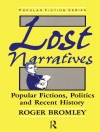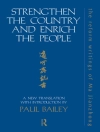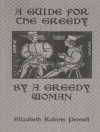The struggle for human rights, emancipation, civil rights, social justice, voting rights and freedom from discrimination and tyranny is captured here in this volume of speeches by some of the most influential and brilliant black orators in history.
From Sojourner Truth questioning society’s role in subjugating black women to Nelson Mandela facing a life sentence in prison with dignity and unequaled poise, this collection of speeches highlights the contributions of these unique speakers, who stood up to prejudice, violence, prison and even death itself to assert their rights as human beings.
In addition to Ms. Truth’s ’Ain’t I a Woman?’ speech and Mr. Mandela’s address to the court, this volume also features Booker T. Washington’s ’Atlanta Compromise’ speech, Mary E. Church Terrell’s opining on what it means to be a black woman in the nation’s capitol, Ida B. Wells’ condemnation of the scourge of lynching in America, W.E.B. Du Bois famous ’A Negro Nation Within a Nation’ speech to the NAACP and Thurgood Marshall’s historic argument for fairness in education before the United States Supreme Court in the landmark case Brown v. Board of Education.
The contributions of these great speakers to the fight for basic human rights cannot be overstated. We are proud to be able to present these breathtaking and stirring orations highlighting the voices of black speakers throughout history.
Om författaren
Thurgood Marshall (1908-1993) was an American lawyer and civil rights activist who rose to become the nation’s first African-American Supreme Court Justice, serving from 1967 until his retirement in 1991. Years earlier, however, Marshall had been the chief legal counsel for the National Association for the Advancement of Colored People (NAACP) and represented that organization in the landmark Supreme Court case Brown v. Board of Education, which argued against racial segregation in public schools. Marshall delivered the closing remarks contained in this volume before the court on December 8, 1953. Soon afterwards, the Court would decide in his favor and against the constitutionality of racial segregation in public schools and this decision remains one of the most important and far reaching pronouncements in the history of the Supreme Court.












